IN THE BEGINNING.... Not Another Journey to Far East Russia....?
Our friends groaned "Why another trip to Far East Russia? Surely you are not returning to Chukotka so soon after your last trip?" What they were really asking of course was why were we travelling yet again to some of the most extreme, difficult and inaccessible destinations the world has to offer. It didn't take too much guessing that most people thought we were totally mad even contemplating what promised to be another arduous, frustrating and most probably downright uncomfortable journey. Oh, and especially "at your age", they added....
Anyone could be forgiven for asking such obvious questions. After all, we had travelled to Russia on three previous occasions; the last two trips (2017 and 2018) being devoted to the Russian Far East (refer blogs "Beyond Siberia: Russia's Eastern Eagle" and "The 19th Corner: Love Affair with Arctic Russia" ). And neither was an easy journey.
On the surface, our reasons were really quite simple. We had not explored the eastern parts of Chukotka during our "winter" 2018 visit* - and we wanted to re-visit the Okrug in the warmer months. We had thought about delaying our visit until the following summer but given our ages of 80 and 65 years, we decided that while we were in excellent health and fitness it was better to travel again sooner rather than later.
*It was actually early spring but the climate for us was definitely that of winter!
But there was more than that.... To our surprise, we had fallen in love with Russia during our very first visit to Moscow and St Petersburg in 2015, iconic cities of a vast foreign land steeped in mystery and intrigue - views of course imprinted on two people who had grown up in the West during the crazy long Cold War years.
Our following travels had taken us to the lesser trodden Russian Far Eastern provinces of Primorsky, Kamchatka, Sakha (Yakutia), Magadan and Khabarovsk. Fascinated by the remoteness and the exotic nature of such climatically, geographically, historically and culturally different environments, we became well and truly hooked on Russia's Far East.
More recently, our 2018 travels had taken us to Russia's polar and most north-eastern region of Chukotka Okrug, arguably one of the the most remote and difficult travel destinations in all of the Russian Federation. How much more extreme a destination could you find, we asked ourselves? I often joked that my next blog should be called "Next Destination: Mars"....
Our decision to return to Chukotka was based on several factors. During our last trip, we had been stranded in Russia's most northern settlement of Pevek for eight days (we were scheduled for just three) because of arctic blizzards and as a result, we had had to cancel some of our planned excursions in the east of the province. It was disappointing but we were well aware that travel can be (aka always is) fraught in Chukotka.
We were also keen to visit Chukotka's rugged east coast on the Bering Strait, and with conditions permitting, undertake the inherently challenging sea voyage to the iconic Cape Dezhnev, the most easterly point in all of Russia and just kilometers from the coastline of Alaska. The Bering Strait held yet another rather off-beat attraction for us. Interestingly, in 1778 this very coastal region was explored by Captain James Cook, the British founder of our home country of Australia. Visiting Dezhnev became a deep seated dream..... and a kind of mission to justify another trip so soon.
We had loved our visit to Chukotka in Russia's cold months. We were fascinated with how anyone could survive, let alone carry out a permanent existence in such an extreme and severe climate where most of the year the land is covered with snow and rivers, lakes and even the ocean are completely frozen.
For people coming from a warm temperate environment on the Mid North Coast of New South wales, the climate during our visit with often blizzard conditions and temperatures as low as minus 50 C, was nothing short of mind blowing. "You must come back in summer!" we were told by locals. "Would we be likely see Polar Bears and the Northern Lights?" we asked. "Of course! But come in August-September. It is warm but there will be no mosquitoes or gnats!" they assured us.
And so we did....
THE ORGANISATION - A FRAUGHT PROCESS
Our travels would be mostly in Chuktotka where we planned to spend some fifteen days in the remote far east of the region. We had enjoyed the township of Pevek during our "winter travels" and were keen to return during the warmer months. Limited flight times however meant we would have to stay for six days, a long time in one very remote town but we reasoned it would give us time to take our breath after what would most likely be a very challenging journey through the remote far east of Chukotka.
Another issue which we had to be mindful of was the 30 day maximum limit on our Russian Tourist Visas. As our combined travels in Russia would use exactly 30 days, any delay due to poor weather or other unforeseen circumstances would be disastrous. It was best not to think about such a situation....
It takes six days to travel to Chukotka from our home village of Crowdy Head, Australia. Our planned route would be a train trip to Sydney, followed by flights to Beijing, Khabarovsk, Magadan and finally to Anadyr, Chukotka's capital city. Magadan being on route, would be another stopping place for a few days for us on our return journey. We love Magadan and had made great friends with our travel agent Valentina, her husband Misha and our interpreter Alexei. But any excuse to stop over at Magadan was worthwhile!
Challenges of Chukotka Travel
A politically sensitive region, Chukotka is classified as a Closed Zone meaning that (in addition to the usual Letter of Invitation for travel in Russia) any traveller Russian or foreign, must apply for a Special Permit - which may take up to 60 days to process. That is, if it is granted.... It is no joke. Travelling in Chukotka involves frequent confiscations of passports and interrogations by Special Border Police, a branch of the Federal Security Service (formerly the secret service KGB) and constant surveillance by the authorities. Not surprisingly, it can be quite confronting.
Travel is inherently difficult in Chukotka. The mostly permafrost environment means that spring snow melts have nowhere to drain, resulting in the formation of extensive muskeg country (swamps) and a dominance of lakes and low lying wetlands. Furthermore, permafrost means that any transport infrastructure must be pinned many meters into the ground to counteract the destablisation effects of freezing and thawing. And that is to say nothing of the severe effects of a wild and frigid climate, where temperatures can plummet to a bone freezing minus 72 C!
There are virtually no all weather summer roads and often the only land transport is by 6WD vehicles (Trekols) through zimniks (ice roads) during the winter months. On zimniks, it is absolutely essential to travel as a convoy in case someone breaks down or gets into trouble - and as we found out, adding substantially to the cost of such travel.
The most convenient transport is by air but with such a low population, flights are limited (sometimes to just once per week) and unpredictable severe weather conditions can mean being stranded at destinations, often for weeks on end.
In smaller coastal or river locations where there are no roads and no airports, boat or helicopter is often the only means of travel. And as we were to find out, like the wild weather, boat transport can be unpredictable and often uncomfortable.
Accommodation is scarce and the quality in the more remote regions is not surprisingly very basic. In some villages, it is necessary to hire rooms or apartments from local owners. In some of the more remote locations, the only accommodation may be schools, local halls, fishers' cottages or camping.
Similarly, in some of the smaller villages, there are no cafes or food outlets and local stores are dependent upon supplies being shipped (in some instances only once per month) by truck, helicopter or boat.
Provisions are understandably limited and very expensive. In some situations as we were to find, it is necessary to carry in all your food and necessary items for several days.
In short, Chukotka can be a travel agent's nightmare. Similarly, Chukotka travel can be more of a nightmare for unsuspecting tourists. And it is very expensive. Oh, and you don't want to get sick either.
The Evolution of Our Journey - The Odyssey Continues
Not surprisingly our travel agents Kutkh Travel, Anadyr were not at all keen to organise our travels according to our plans. It was in hindsight, totally understandable. After all, just a windy day in remote Pevek can mean flights are cancelled. And we had certainly witnessed this situation during our March-April 2018 travels.
In saying that, Kutkh had been the only travel agents we could find who were prepared to take us on our unusual winter journey through Chukotka in March-April 2018 and it was unlikely any other agent would take us on this trip. Furthermore, we had been very happy with their service, and especially that of our interpreter Alex who would accompany us once again on this tour.
After months of debate and dozens of emails about our intention to visit remote settlements along the Bering Strait coast and also our beloved Pevek, we were finally issued with an itinerary with which we were happy. Most of our travel in the eastern coastal area along the Bering Strait would be by boat we were told; hunter's boat to be more accurate. "What is a frigg'n hunter's boat?" I asked Alan. We guessed it would be a whaling boat and so we assumed our vessel would be of a reasonable size. After all, whales are rather large.... It should be noted that we probably didn't want to know as we didn't ever ask the question. And anyway, what was the point? There was no other means of getting to these places. It was only just before our departure that Alan confided "I think perhaps these boats may be quite small and probably not covered". How crazy was that I thought crossly. All of our luggage would get wet if it rained. We didn't ever follow up with our travel agent which was probably just as well. And funnily enough, we also didn't bother to ask about food....
But by the time we received our program, it was very late in the organisation of our travel and external flights to Russia via China were heavily booked. We eventually had to settle for flights with several stops in China, a situation that was to cause us all sorts of difficulties, including having to obtain double entry Chinese Tourist Visas just a week before we were due to depart. Thank goodness for the assistance of our travel agent and good friend David Hu from China Travel Service, Sydney....
Our travels in Magadan were much easier. We had visited the city and surrounds twice before and as we only had a few days, we decided to use our stay mostly for rest and also for a brief catch up with Valentina.
As usual, the organisation and lead up to our travels had been hard work, onerous, frustrating and stressful. Perhaps our friends were right. Maybe a cruise around the Pacific may have been a better option?
The rewards however, of travel to such a remote and unique destination as we were to find, were well worth any of the frustrations and discomfort we were to endure. The unique experiences we encountered were nothing short of mind blowing. It was all we wanted and more than we expected. Yes, we would even go so far as to describe our trip as a life changing journey....
OUR TRAVEL AGENTS
We used the services of the following travel agents:
Dan Brown, Flight Centre, Foster New South Wales, Australia. Email: dan.brown@flightcentre.com.au
David Hu, China Travel Service, Sydney, Australia. Email: ctsdavid@chinatravel.com.au
Vladimir Bystrykh, Alexander Vykvyrahyrgyrin & Michael Rezyapkin, Kutkh Travel, Anadyr, Chukotka, Russian Federation. Email: kutkhtravel@mail.ru
Valentina Kurash, Magtur, Magadan, Russian Federation. Email: magtur12@mail.ru
Our hotel accommodation in Sydney, Beijing, Shanghai, Khabarovsk and Magadan was booked by ourselves on-line.
PERSONAL CONTACT
We are happy to be contacted by email should you have any questions about this trip. Our email address is: crowdywendy@bigpond.com

 Crowdy Head, New South Wales, Australia
Crowdy Head, New South Wales, Australia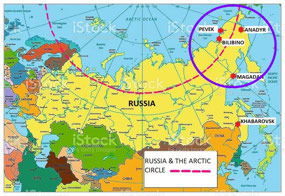
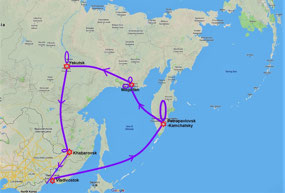
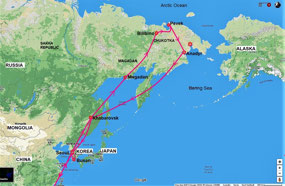
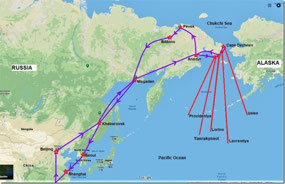
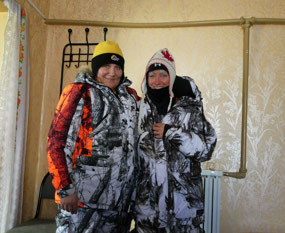
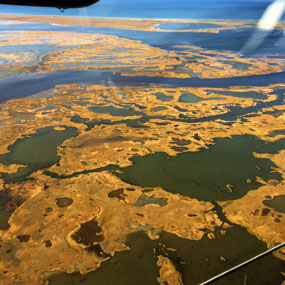
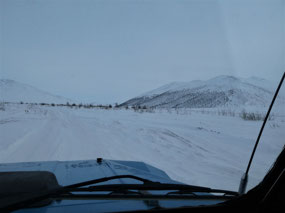
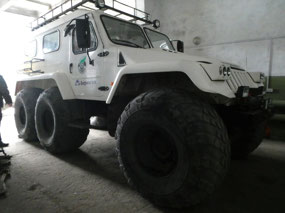
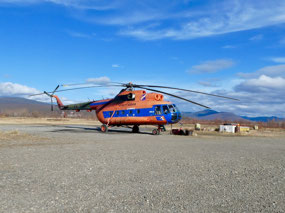
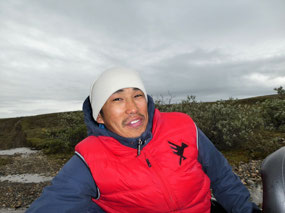
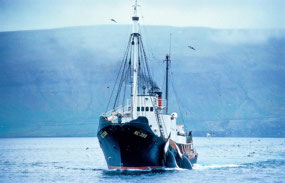
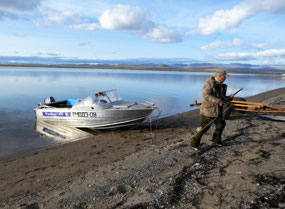



Bold
2018-10-05
Hello there Alan and Wendy? Still travelling around the globe? Your "Trekol" looks very impressive. Good luck with your further journeys..